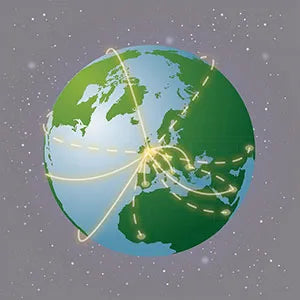This week sees World Water Day take place and with each year the message resonates further - just how important this precious resource is to each and every one of us.
It is unthinkable that in the 21st century there are millions of families who do not have access to clean drinking water.
A staggering 663 million people still do not have access to a clean water supply. Children are dying after drinking contaminated water that has made them ill.
Tragically, unsafe water and poor sanitation is estimated to cause 842,000 deaths every year. Water filters have proved vital in the battle to tackle this problem.
The problem of wastewater
Yet, in the face of this, wastewater remains a problem. By focusing on the problem this year's World Water Day hopes to shine a spotlight on this tragic reality that while so many go without, so much is still wasted.
It is the developing countries worst affected by a lack of clean drinking water that also fail to channel their wastewater for another purpose where it could be used to cut costs, boost productions and ultimately help towards the costs of an infrastructure to support a more sanitary drinking water supply.
So integral is the problem of wastewater that halving the amount left untreated is part of a United Nations Sustainable Development Goal to improve drinking water for all by 2030.
As charities and agencies struggle to work towards a solution to the problem of sanitary infrastructures and the provision of clean drinking water, filters remain key to their work.
Doulton's ceramic water filters use natural materials to cleanse contaminated drinking water, removing harmful contaminants.
With families left with no option but to share unsafe water sources with animals, water filters really do help to save lives.
A vital role for water filters
In communities where fuel costs prove prohibitive to boiling water to remove impurities, water filters can be used instantly and without an ongoing daily cost.
British Berkefeld® Water Filters are used in "˜Cleanwater kits", that have been sent out to communities in dire need of clean water in the wake of a humanitarian crisis. Cleanwater kits can be used on the go and will filter particles and pathogens out of almost any fresh water source.
Already British Berkefeld® water filters have been introduced to households in rural South Africa and Zimbabwe by Aquapol in a bid to cut dysentery caused by drinking unsafe water. The rate of contagion fell by 80%, boosting adults' ability to work and, vitally, children's school attendance.
Again, in Uganda, where fuel shortages made it difficult to boil impurities from water, communities were given Cleanwater kits to ensure they had access to clean drinking water.
Projects such as these remain a lifeline to communities trapped in a cycle where a poor infrastructure to deal with wastewater is combined with a desperate need for clean drinking water.
Wasting a precious resource
The message this World Water Day is that wastewater is being neglected as an affordable source of water, energy and nutrients.
It is hoped that in the long-term, rather than being disposed of, wastewater will be seen as a resource with a central role in bringing sanitary infrastructures to those in need.
While the resources to install the systems needed to properly treat wastewater remain out of reach, water filters will continue to be a lifeline to families where clean drinking water sadly remains a precious luxury.






